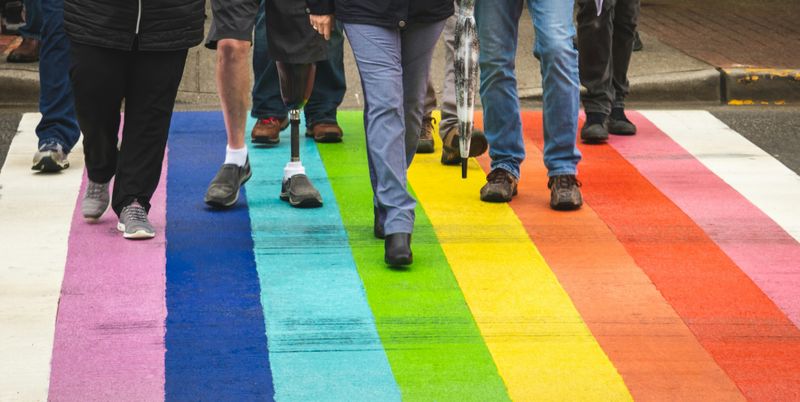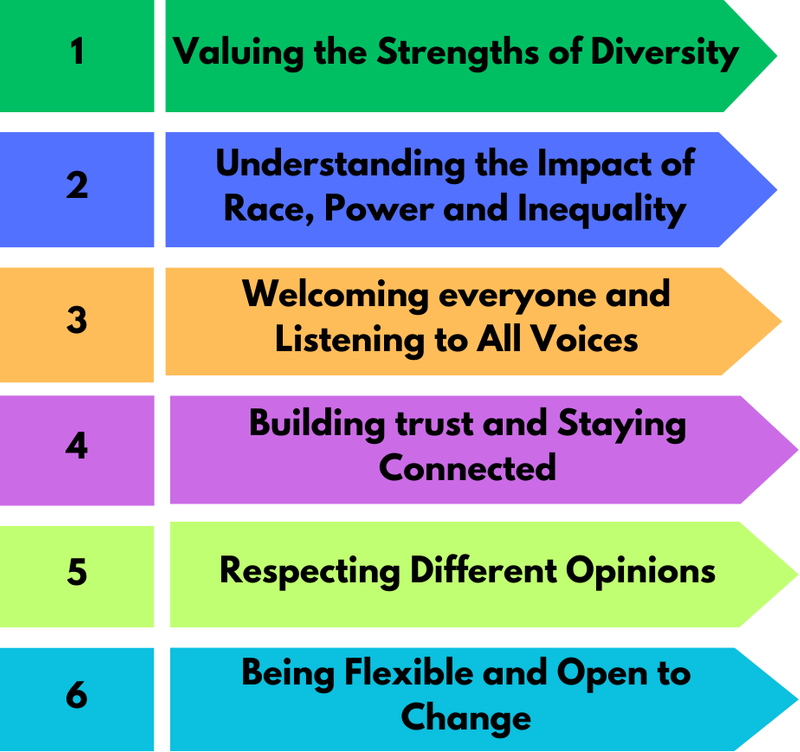Picture this: Community leaders organize a meeting to discuss transportation but choose not to involve people who ride the bus and train daily!
Do you think that's right? Not at all!

When engagement isn’t inclusive, decisions miss the mark. True progress happens when all voices — especially the unheard ones — are welcomed.
Inclusive civic engagement is about listening, valuing diverse perspectives, and making sure everyone can participate in shaping their communities.
What is Inclusive Civic Engagement?
Let's break it down!
Inclusivity means actively creating spaces where everyone feels heard and valued.
Civic engagement is about getting involved to make a positive difference in your community. It means using your knowledge, skills, and values to help improve local life, whether through politics or everyday actions.
Inclusive civic engagement means ensuring that everyone — regardless of background, age, or circumstances — has an equal opportunity to participate in shaping their community.
 Photo by Greg Rosenke on Unsplash
Photo by Greg Rosenke on UnsplashWhy does inclusive civic engagement matter?
It leads to better decisions that reflect diverse needs.
It strengthens trust and relationships within the community.
It encourages active citizenship and long-term community involvement.
Consider Sarah

Sarah, a young professional, moves into a new neighbourhood where the local council plans to build a park.
To make sure all residents have a voice, they use multiple ways to gather input — online surveys, community meetings, and a digital forum. Sarah suggests features like quiet workspaces and fitness areas, and she feels valued when her ideas are considered.
By involving a diverse group of residents, the council designs a park that meets various community needs.
Quiz
Which approach would be most effective in ensuring that all community voices are heard in future projects?
Principles of Inclusive Civic Engagement
For civic engagement to be fair and inclusive, we need principles that give everyone a chance to participate, especially those who are often left out. These principles ensure that everyone can take part, feel valued, and have their voices heard.
 Image created by the author via Canva. To hear an audio description of the principles of inclusive civic engagement in the image above, click the play button on the audio player below:
Image created by the author via Canva. To hear an audio description of the principles of inclusive civic engagement in the image above, click the play button on the audio player below:
Digging Into the Principles of Inclusive Civic Engagement
 Photo by Hannah Busing on Unsplash
Photo by Hannah Busing on UnsplashHere's a breakdown of each principle:

1. Valuing the Strengths of Diversity
Communities grow and flourish through the unique talents and experiences of their people. When we share our skills and learn from each other, we build a stronger, more supportive community. By valuing everyone’s contributions, we can grow together and solve challenges as a team.

2. Understanding the Impact of Race, Power, and Inequality
To create a welcoming community, we must recognize challenges like unfair opportunities and lack of support. Open conversations help us learn from the past and make positive changes. For example, ensuring equal access to education can create a fairer, stronger society.

3. Welcoming Everyone and Listening to All Voices
Strong communities begin by welcoming everyone and valuing their ideas. When people feel included and listened to, they become more involved and connected. By embracing different perspectives, we build communities where everyone has the chance to grow, share, and succeed.

4. Building Trust and Staying Connected
Strong communities thrive on trust and teamwork. When people keep their promises and work toward common goals, relationships grow. For example, neighbors who organize clean-up days and support local businesses help build a more connected and caring community.

5. Respecting Different Opinions
Strong communities welcome different opinions. Listening to all voices, even those we disagree with, can lead to new ideas and better solutions. For example, a town meeting where residents share different views on a park design can help create a space that works for everyone.

6. Being Flexible and Open to Change
Communities, like people, are always evolving. Focusing on values rather than fixed plans helps us grow. For example, a neighborhood adjusting its events to include different cultures fosters connection and progress.
Practicing the Principles of Inclusive Engagement
Scenario
You’re part of a community group organizing a meeting to talk about changes to the local school curriculum. The goal is to get input from as many people as possible to make sure the curriculum meets the needs of everyone in the community.
However, some groups, like immigrant families and people with low incomes, haven’t been included in these discussions in the past.

Using the principles of inclusive civic engagement, what is the best way to make sure everyone’s voice is heard at the meeting?
A. Only invite people who have been to past community events because they're already involved.
B. Offer translation services and childcare, and contact underrepresented groups through community centers and social media to encourage them to join.
C. Focus only on the loudest or most important people in the community, since they probably have the best ideas.
D. Hold the meeting online only, because it’s quicker and easier for most people.
Quiz
Select the best way to ensure everyone's voice is heard at the meeting:
Take Action
Engaging in inclusive civic engagement activities benefits both communities and individual well-being. Active citizens play a crucial role in a thriving democracy.

Think about how you can practice inclusive civic engagement in your community:
Your feedback matters to us.
This Byte helped me better understand the topic.
